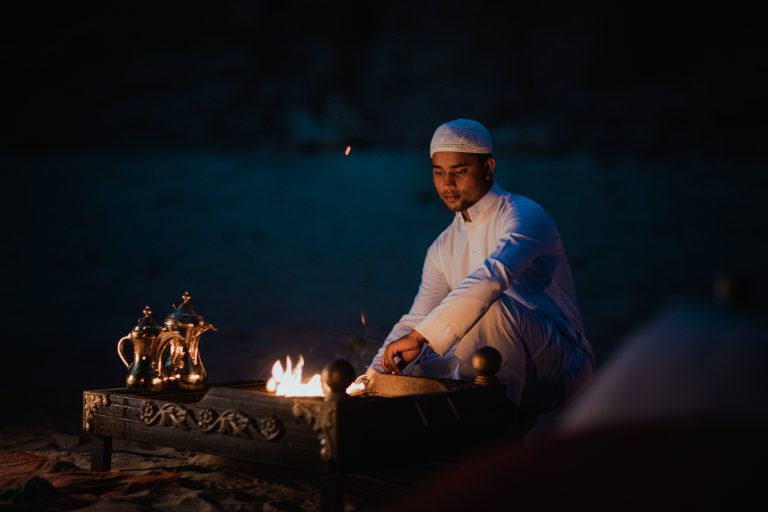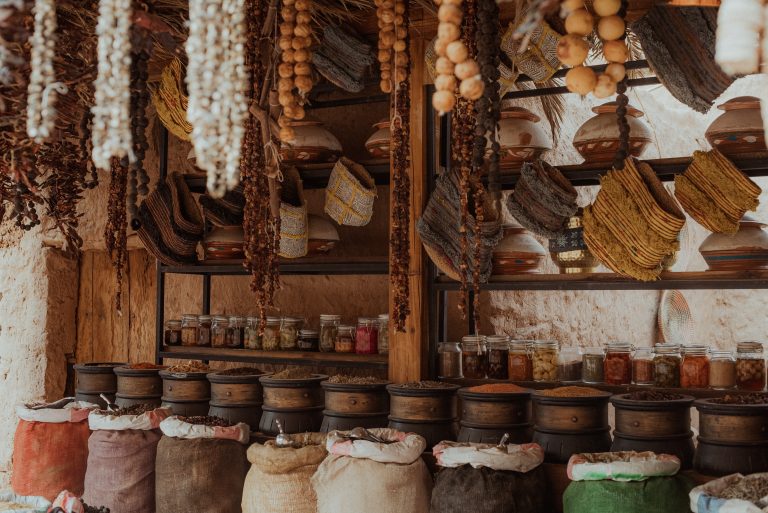The difference between a routine and a ritual is the attitude behind the action. At Habitas, rituals are one of the pillars that create the magical worlds where strangers become friends and friends become family. While our rituals may vary across our homes around the world, each is deeply rooted in the local practices of the region. In our home in Alula, we explore the ancient origins of the tea ceremony as the ultimate symbolism for hospitality.
The journey of tea has been an exciting venture spanning the globe from East to West, and making history on its way. Green tea traces back to having reached the region via the caravan trade on the Silk Road, from China through Central Asia to the Middle East. In the nineteenth century, however, it was black tea that took over from coffee as the Middle East’s favorite drink which still stands today.
The Middle East has created a vast variety of unique teas by infusing them with herbs, fruits, flowers and spices, all varying by region. The act of sharing a cup of tea is, simply put- the epitome of a warm welcome and cordiality in this part of the world. When a warm cup of tea is extended, the significance goes far beyond an afternoon delight but rather an invitation to experience a vital part of the region’s culture. While AlUla is a region of deserts and arid mountains, studies have proven the health effects of drinking tea in hot, arid climates as a method to cool down the body.
The tea in Saudi Arabia is usually a strong dark blend, often brewed with sugar and prepped in beautiful Arabic teapots and hand poured in tall slender glasses. At our home in Alula, you will have the opportunity to create your own tea infusions, using other local varieties in the region such as maramia (sage) na’an (mint) za’atar (thyme) and babooneh (chamomile) .
The time alone to prepare the tea helps create a feeling of comfort and connection among the host and guests. A pinch of aromatic Cardamom and a dash of evaporated milk are common add-ons, especially when taking time to slow down and enjoy the moment; perhaps after a long boisterous meal with new friends or to wrap up a new business venture. A traditional greeting dish to accompany the tea usually includes dates and an assortment of delicious sweets. The pot’s first cup of tea is usually poured for the guests as a sign of respect and willingness to protect them. But be warned, refusing a cup of tea is not an option as it can be construed as being rude and an insult to the host!
The warm tradition of enjoying a glass of tea as a companion to lively conversation remains at the heart of Middle Eastern social life. These special traditions are passed on within the family through observation and practice. At Habitas Alula, we will continue to honor these ancient traditions and welcome our guests with the same warmth those who have called this place home for centuries have. We will continue to foster connections where strangers become friends and friends become family.
it’s a pirate’s life
Discover the cultural community center bringing self-expression to Bacalar.



